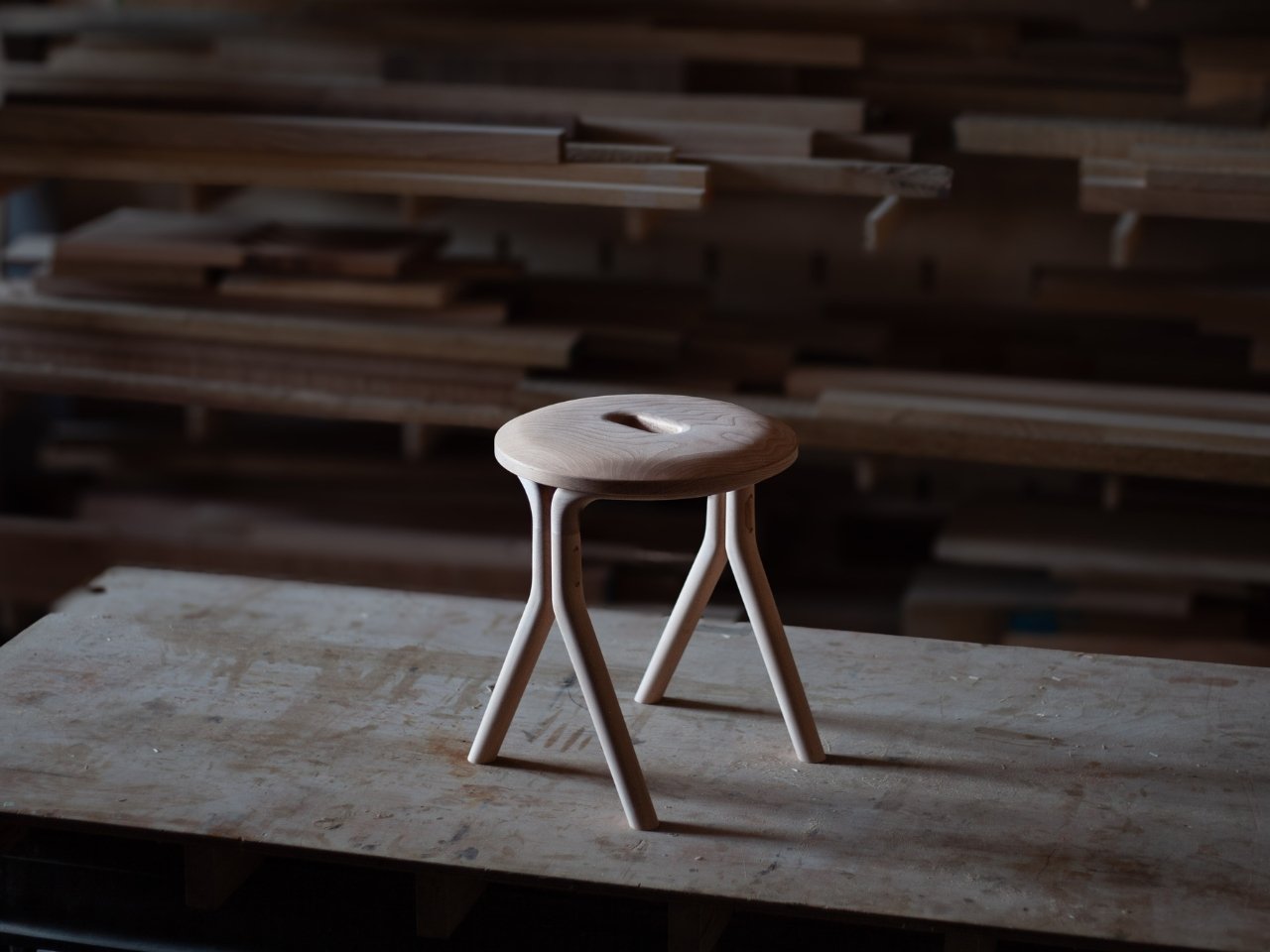The Terna Stool is a new prototype that strips a café stool down to three essential parts: a round seat and two matching legs. It is able to create a lightweight, portable perch for short stops in bustling city spaces. Its circular seat lets users sit facing any direction, while a cut‑through handle in the centre provides an instant grip for picking up and moving the stool .
Designed by industrial designer Joe Slatter, the prototype was fabricated in London using CNC machining on solid European beech. The stool is dry‑assembled with minimal fixings and magnets, allowing it to be quickly assembled or disassembled without tools . Future production will shift to a steam‑bent process for the legs, echoing the mid‑century tradition of bentwood café furniture while keeping the design’s ultra‑simple aesthetic .
Designer: Joe Slatter
With its circular seat and two identical legs, the Terna Stool is crafted from solid European beech and dry‑assembled with magnets and minimal fixings for easy disassembly. Its 360‑degree seat allows users to face any direction, while a cut‑through handle at the centre provides a quick grip for lifting and repositioning. They nticipate future production using steam‑bent leg construction that references the tradition of bent‑wood furniture.
The Terna Stool debuted as part of Design Everything’s “A Seat At The Table” exhibition, a traveling showcase that places seats in active community settings rather than on static plinths. Each day the exhibition moves in a Luton van to different design districts across London, hosting talks, workshops and round‑circle debates. Within this mobile context, the stool reflects café culture’s emphasis on quick exchanges, brief perches and easy movement through the city.
Joe Slatter describes the piece as “a study in utility,” noting that it is meant to be lifted, positioned, used for a brief perch and then left behind as the user continues on . The design’s simplicity is intentional: by reducing the stool to three components, it becomes a tool for conversation and collaboration rather than a decorative object . The prototype was made by maker James Trundle, who executed the CNC machining in London’s workshop . Photography by Guy Lockwood captures the stool’s clean lines and the way it integrates into the exhibition’s interactive settings.
By combining modern digital fabrication with a nod to traditional bentwood techniques, the Terna Stool illustrates how minimalist design can serve both functional and social purposes. Its lightweight construction, 360‑degree seating and easy‑carry handle make it ideal for the transient nature of urban cafés and pop‑up community events. While still a one‑off prototype, the design points toward a future where small‑scale, sustainably produced furniture can adapt to ever‑changing public spaces.
The post Terna Stool prototype uses minimalist Brentwood design for cafe seating first appeared on Yanko Design.

